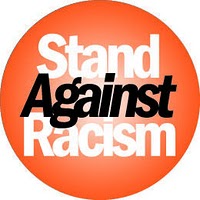What Paul Robeson Said
In April 1949, just as the Cold War was beginning to intensify, actor, singer and civil rights activist Paul Robeson traveled to France to attend the Soviet Union-sponsored Paris Peace Conference. After singing “Joe Hill,” the famous ballad about a Swedish-born union activist falsely accused and convicted of murder and executed in Utah in 1915, Robeson addressed the audience and began speaking extemporaneously, as he often did, about the lives of black people in the United States. Robeson’s main point was that World War III was not inevitable, as many Americans did not want war with the Soviet Union.
Before he took the stage, however, his speech had somehow already been transcribed and dispatched back to the United States by the Associated Press. By the following day, editorialists and politicians had branded Robeson a communist traitor for insinuating that black Americans would not fight in a war against the Soviet Union. Historians would later discover that Robeson had been misquoted, but the damage had been almost instantly done. And because he was out of the country, the singer was unaware of the firestorm brewing back home over the speech.
It was the beginning of the end for Robeson, who would soon be declared “the Kremlin’s voice of America” by a witness at hearings by the House Un-American Activities Committee (HUAC). Committee chair John Wood, a Georgia Democrat, summoned baseball great Jackie Robinson to Washington. Robinson, appearing reluctantly, denounced Robeson’s views and assured the country that the singer did not speak on behalf of black Americans. Robeson’s passport was soon revoked, and 85 of his planned concerts in the United States were canceled. Some in the press were calling for his execution.
Later that summer, in civil rights-friendly Westchester County, New York, at the one concert that was not canceled, anti-communist groups and Ku Klux Klan types hurled racial epithets, attacked concertgoers with baseball bats and rocks and burned Robeson in effigy. A man who had exemplified American upward mobility had suddenly become public enemy number one. Not even the leading black spokesmen of the day, whose causes Robeson had championed at great personal cost, felt safe enough to stand by the man dubbed as the “Black Stalin” during the Red Scare of the late 1940s and ’50s.
Click here to view the entire article



 Posted by thehealer31
Posted by thehealer31 

